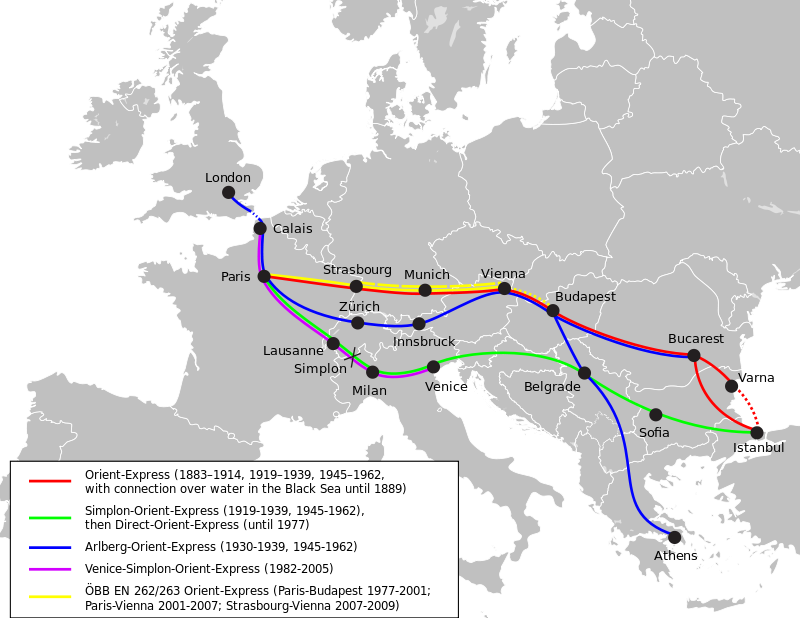Orient Express
On June 5, 1883, the first Express d'Orient left Paris for Vienna. Vienna remained the terminus until October 4, 1883. The train was officially renamed Orient Express in 1891.[11]
The original route, which first ran on October 4, 1883, was from Paris, Gare de l'Est, to Giurgiu in Romania via Munich and Vienna. At Giurgiu, passengers were ferried across the Danube to Ruse, Bulgaria, to pick up another train to Varna. They then completed their journey to Constantinople by ferry. In 1885, another route began operations, this time reaching Istanbul via rail from Vienna to Belgrade and Niš, carriage to Plovdiv and rail again to Istanbul. WL Orient Express
In 1889, the train's eastern terminus became Varna in Bulgaria, where passengers could take a ship to Constantinople. On June 1, 1889, the first direct train to Istanbul left Paris (Gare de l'Est). Istanbul remained its easternmost stop until May 19, 1977. The eastern terminus was the Sirkeci Terminal by the Golden Horn. Ferry service from piers next to the terminal would take passengers across the Bosphorus to Haydarpaşa Terminal, the terminus of the Asian lines of the Ottoman Railways.
The onset of World War I in 1914 saw Orient Express services suspended. They resumed at the end of hostilities in 1918, and in 1919 the opening of the Simplon Tunnel allowed the introduction of a more southerly route via Milan, Venice and Trieste. The service on this route was known as the Simplon Orient Express, and it ran in addition to continuing services on the old route. The Treaty of Saint-Germain contained a clause requiring Austria to accept this train: formerly, Austria allowed international services to pass through Austrian territory (which included Trieste at the time) only if they ran via Vienna. The Simplon Orient Express soon became the most important rail route between Paris and Istanbul.

